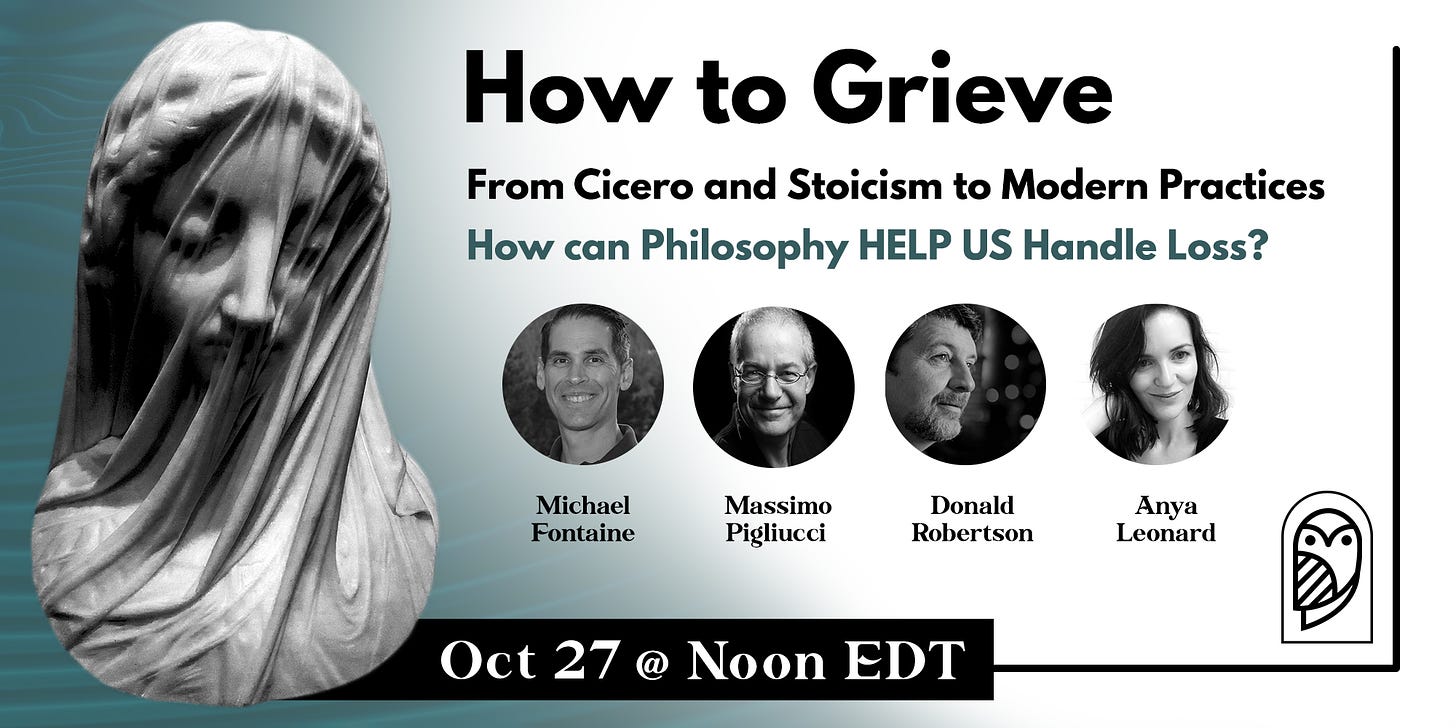BC/AD... or BCE/CE: The Results Are In!
Time to “STEELMAN” your position with the best arguments included
Dear Classical Wisdom Reader,
Well, if you thought it was going to be a clear and cut case... then think again!
Last week I asked if we should use the BC/AD system... or the BCE/CE, with a (very short) history lesson explaining that the more ‘modern’ abbreviations were introduced by Kepler in the 1600s.
Not only were the responses massively divided, the respondents were hugely diverse themselves... as well as highly qualified to weigh in on the topic. Indeed, I don’t think we’ve ever had so many monks, preachers, professors, rabbis and humanists write in before! I’m honored.
I also was certain there would be a clear winner... but as I tallied as I read, just when one side would be taking the lead, the other would promptly catch up. The conclusion, believe it or not, was exactly divided - equal points for both sides, with a small smattering of depends/either.
The response was so great, however, I wasn’t able to include everyone’s replies in this mailbag... but I did choose a selection of some of the most compelling or original arguments below.
I think this is an excellent opportunity to ‘steelman’ your opponent’s position. For those of you who are not familiar with the ‘steelman’ tactic...essentially, it’s the opposite of ‘strawmanning’, which is an informal fallacy after all.
The idea of ‘steelmanning’ is to read and understand (ideally with an open mind) the BEST points from your opponent's argument. If you can tackle their weakest items... but not their strongest... then perhaps your own position needs strengthening.
Read below and let me know if you kept your position, or were swayed to the other side:
Also included are a few interesting compromises and suggestions... but one that was missing is actually what Classical Wisdom’s policy has been. I have always delegated the choice to the author... which is why you will have seen both used. I feel this is the only way to be both consistent and fair to two systems which have been in use for four hundred years.. And considering our readers are exactly half/half on your opinions regarding this issue, it’s probably a policy I should continue! Does that sound fair to you?
Let me know in the comments below...
All the best,
Anya Leonard
Founder and Director
Classical Wisdom
P.S. In case you missed it, you can now register for this month’s truly important panel discussion: How to Grieve, featuring Michael Fontaine, Massimo Pigliucci and Donald Robertson. Check out details here:
https://how-to-grieve.eventbrite.ie
BC/AD... or BCE/CE?
Thank you, Anya, for your emails, which regularly make me think, question myself, and learn.
As a high school history teacher, I prefer the Dionysian system. Besides its significantly superior readability, it has the weight of history behind it. Both systems use exactly the same numbers, and I see no improvement in changing the labeling of eras to obfuscate the event used to determine the shifting of eras (i.e., the hypothetical birth date of Christ, inaccurate as it may be). Why would we create additional barriers to reading documents written prior to today? Why require our students to remember yet another arbitrary label that provides no additional utility or information? In what way is it superior to the system used for more than a dozen centuries?
Western culture has been indelibly impacted by the Christian movement. Only a fool would pretend otherwise or deny our roots.
If and when there is a viable dating system that actually represents a different perspective on the shifting of eras (e.g BIR for before industrial revolution or BC for before Covid), then we will have something worth discussing.
Warren S
Hi Anya,
Regarding BC vs. BCE and AD vs CE, I personally think that a good compromise might be to use the older designations when working with materials prior to 1615 or even 1700, and the alternative designations for materials post-1700.
This does two things for me. 1. It allows us to continue with the older designations which we will see in the texts from pre-1700 years. 2. It positions things with a historical shorthand for any readers/ thinkers working with the material. A further nudge for retaining the older designations may be that in those time periods, there were fewer secular folks working and any Jewish or Muslim scholars who were outside of the influence of the Holy Roman Empire and Church would have used their own calendars. 'Common era' would have been incoherent for those people.
Just some thoughts.
Janet
I was brought up to use BC/AD but now try to use BCE/CE as I feel that this is more relevant to non-Christians.
Gina S
Hi Anya,
I suppose the most important touchstone is whether one wants to honor Jesus, or not. As He is the Word of God, honoring him is a worthy objective, even in small matters. So I use BC/AD. But I certainly understand what is being said when anyone uses BCE / CE, so use of that system by others raises no barrier to communication.
Blessings,
Ed
Anya
I always prefer BCE and CE. The simple reason being that I'm not a Christian. However, to open another can of worms, I always wonder what makes certain time periods "common"? What was common in 1 BCE that wasn't common in 1 CE? Obviously that's tough to answer since both terms were later inventions and at the time of 1 BCE and 1 CE, they weren't thinking in those terms. Just something I ponder but I don't think there's any issue using either of them. They both refer to the same time frame, both digress towards zero then progress after zero and both follow the same numerical year format they are attached to. So, it's really just a personal preference! Thanks
Tim
Regarding the use of CE/BCE or AD/BC, I would personally prefer that everyone used the Thelemic notation of E.V. for Era Vulgaris to denote all Gregorian and Julian calendar dates. But given the choices you set out, definitely the CE/BCE since it is secular and drops reference to Christianity.
Love is the law, love under will.
Rex

Hi Anya,
To be frank, since the world isn’t entirely Christian, using BCE and CE, to me, make more sense. I’m all for decentralizing Christianity.
Donna
Interesting question.
There doesn't seem to be much point to changing from BC/AD to BCE/CE. At the end of the day the question can still be posed: what happened in CE 0 that made that the fulcrum point of demarcation?
The "problem" mostly seems to come from people's aversion to acknowledging religious impacts on history. Pick any other point in history as the "fulcrum", say... Caesar crossing the Rubicon. A largely secular point, one could argue (though perhaps Caesar believed something religious about his divine right?).
Now we could have something like BR/AR (Before the Rubicon / After the Rubicon).
It's just another defining point in history that will never be entirely relevant to ALL historical events.
Or... we could just stop having a before and after and get everyone to agree on some other arbitrary "start" point to count with. Not sure what everyone could agree on, maybe the earliest Sumerian business complaint about copper ore? Even then they had a different method of measuring time than we do that was just as arbitrary.
Whether it's the supposed year of the birth of Jesus bar Joseph or some other point, it exists today as a useful reference point with which to count and provide context to placing ourselves in history and measuring temporal 'distance.'
The push to use BCE/CE just feels like a largely symbolic move that doesn't actually accomplish anything other than devaluing a useful point in the historical record that ultimately still leaves the question to the future people asking why?
What happened in zero CE that made it the "fulcrum?"
Regards,
Matthew
BCE or CE because religion should have no role in dating but we are tied to our past, ie, you can’t escape the volumes of work published with BC and AD but you can make one’s religious faith irrelevant by the word “common”.
Helmut
Hi Anya,
Great question, as I'm looking forward to the range of opinions. For me, as a Christian, it doesn't matter which terms are used. I automatically relate BC, BCE, AD and CE to before Christ and in the year of our Lord. It's still the same frame of reference, no matter, as the lynchpin of history is Jesus, the Christ. BCE and CE are still the same frame of reference. I understand why non-believers prefer BCE and CE, but they are only fooling themselves as long as we use the Julian and Gregorian calendars. A rose by any other name is still a rose. If we think Y2K was an issue, just think about a new calendar; I can only guess at the anchor points that would be proposed.
I am enjoying Classical Wisdom! It's a joy to go deeper into the classics as I never had time previously.
Sincerely,
Dennis M
Hello Anya,
An interesting and hotly debated question, one of direct relevance to my teaching, as the dates of philosophers and philosophical movements are part and parcel of most of my courses. I think the stronger case can be made for 'Common Era,' and it's the designation I've used now for years. It's a simple case - as Christianity no longer is as hegemonic in the West as it once was, the traditional year presuming to mark the birth of Jesus is of less significance than it once was. Of course, it was always insignificant to non-Christians anyway. Ultimately, the Common Era designation seems to me more appropriate for a pluralistic society.
Best,
Alan
Hello Anya, concerning your question this week:
We should clearly call the (currently common) era the Christian era, simply because it is the Christian era. This way of counting years, this era, had been established by Christians according to Christian beliefs, and this is true even if you do not believe in Christianity.
And there should be no problem in calling the Christian era as what it is, because we have no such problems with similar established systems. For example, our alphabet is Latin, and our numbers are Arabic. Should we stop calling our alphabet the Latin alphabet and call it the "common" alphabet? And should we stop calling our numbers Arabic and call them "common" numbers? No, certainly not.
And in the same way, the Christian era is and will always be the Christian era, even if there would be no Christian believer left on this planet earth. Concerning the abbreviations, BC and AD are good, but maybe BCE and CE would be even better, if only the "C" would be interpreted as "Christian": Before Christian Era, and Christian Era. Disclosure: I am not a Christian.
With best regards
Thorwald C. F
Hello,
Personally I much prefer CE and BCE because there is no religious connotation. The term "Christ" is a religious one that not only excludes non-Christians, but isn't even historical. Even if there was a historical Jesus, "Christ" is a religious concept, not an event.
Thanks,
Jonathan G

I use BC and AD. I am a Christian, though it was also the tradition I was brought up with (never saw the BCE/CE terms until I was much older). But the thing that frustrates me is when people put AD after rather than before the year ;)
Darren
Please use the secular terms, this is not a Christian newsletter.
Thanks and keep up the good work,
Johanna
Hi Anya,
BC and AD for me. Simply because we delineate the eras based on the birth of Jesus. Today, society feels the need to prove its secularization, so it pushes the BCE & CE nomenclature, but that doesn't change the fact that the eras are separated by an event, the birth of Jesus.
Then again, I'm Greek Orthodox, and the Church still uses the Julian calendar ...
Peter M
Hello,
For what it's worth, I'd cast a strong vote for BCE & CE.
As a secular humanist (and (Bertrand) Russell's teapot atheist) Jew who spent a couple of decades identifying as a Buddhist, I think we should stop using Before Christ and The Year of Our Lord.
Kindly,
Bill
Hi Anya
The answer is pretty apparent. The birth of God incarnate is the driving force. That triggered year zero and the reset. Therefore AD is the only correct terminology to employ because it is the remembrance of that event that created it. Kepler changed it as a rebellion against the witch hunting Catholic church tyranny.
For secular people then you must find another starting point. The Jews use the starting point of creation. A seculairst might embrace that and date accordingly, believing that creation was some kind of big bang. Failing that, they could use the oldest fossil date and call that year zero or simply buy into the evolutionary time table and begin with year zero marking that earliest created date.
You may remember the French Revolution tried to restart the calendar from 1789 and the Comminist in Russia adopted a similar approach.
A calendar requires an absolute. A secularist has none.
Charles F
For this website, I would be in favor of the secular BCE/ CE system. The other system proclaims a time after Christ; Christ being a theological statement about the person of Jesus. Therefore, since theological statements favoring Christianity would seem unnecessarily biased for your purposes, I propose the secular system mentioned above. I say this as a Christian and as a monk.
Pax,
Fr. Todd S
I much prefer BC/AD because a) that’s what I am used to; b) the difference is greater than that of BCE/CE; c) it has a clear reference (irrespective of creed); d) everything doesn’t have to be changed/modernized all the time; and e) let’s stick with Western tradition in the West; let others do as they want.
Olle E
From a classical perspective, the best, the most conservative, the most descriptive answer is BC and AD. A classicist should argue that a system which is older should only be removed when it is less correct. Since BC/BCE and AD/CE refer to exactly the same year, the replacement BCE/CE should be more descriptive and more representative of our civilization. And it should be based on our civilization. After all, we are not using the Chinese, Japanese, or Muslim calendar years.
When we select the BCE/CE, we remove the Judean and Christian nature of our civilization... we are left with... less descriptive terms.
Therefore, the question then becomes: should we recognize that Western Civilization is dependent on the Jewish moral code, the birth of Christ, or not? I politely submit that we should. The Jewish moral code which was modified into the written Christian moral code, which was then accepted by the Roman and Greek civilizations, was a significant improvement vis-a-vis anything else - the Babylonians, the Egyptians, the Greeks or the Romans. Quite simply, without even this moral code, we might still be sacrificing infants to Moloch, leaving babies on a hillside to die, or celebrating Bacchanalian festivals. That would not be a better, or more representative "civilization".
Yes, we have often fallen short of the ideal. But to forget, to diminish the ideal, is to diminish everything else that is classical as well.
Godspeed,
Don B
No doubt in my mind:
Abandon the Chrisian time reckoning, BC, AD
Go with the Common Era, and Before Common Era.
No question.
Thank you for the information about Kepler! I did not know he was the author of this mode of reckoning!
Nancy E
Maybe we could drop the whole arbitrary distinction?
Erik J. A









I kept looking for the strong points of the BCE/CE side and I couldn’t find any. It all boils down to wanting to remove religious or specifically Christian references, yet it accomplishes nothing of the sort. The reckoning point is still Christ, and all Kepler’s dating convention does is throw up a smokescreen.
I found it particularly interesting that a presumed Thelemite feels so strongly about removing references to the Christian religion given that Crowley’s work, and his goddess, Babalon, comes from the Revelation of St. John. To create something in reaction to another thing is to tie yourself to it forever.
Religion has always been integral to human civilization. One doesn’t have to practice Christianity to acknowledge that it has been foundational in shaping the world we live in. BCE/CE does nothing to remove that foundation, it only lets people pretend otherwise.
I prefer CE/BCE not only because we aren't ALL Christian, but it is just literally inaccurate, we have no way of knowing the actual date of Christ's life, birth or death, so saying Before Christ is just too nebulous. The Common Era is more factual and more definitve.